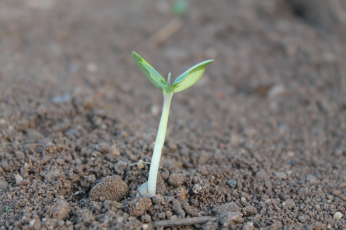
Test your soil before you sow as one of the easiest mistakes to make at this time of year is being too quick off the mark sowing seed outdoors.
Seed hunkers down to wait for better weather in chilly soil instead of germinating, putting it at risk from rotting or being eaten first. Sown in warmer conditions, though, they germinate quickly and grow away vigorously, often overtaking earlier-sown seedlings.
Every spring is different, and the date on the calendar isn't a reliable indication of the weather outside. Test soil temperature over the course of a week, though, and you'll know exactly what you're letting your seeds in for.
Soil thermometers with a long probe, available in our garden centre here in Henley on Thames, are inexpensive and easy to use. Simply stick it into the ground where you want to sow seed every day, writing down the temperatures you record.
The minimum temperature for germinating the hardiest seeds, such as peas and carrots, is 7°C: once the soil registers at least this temperature for a week, you're safe to sow. Ideal temperatures vary from seed to seed: cabbages and spring onions need at least 10°C while the tender vegetables, like French beans and courgettes, require 18°C to get going.

